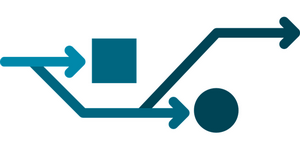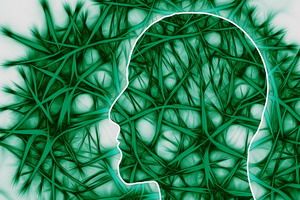
Ellen asked me this the other day. We were sitting in the car at the farmer’s market. I had just picked up some persimmons with which to try to make persimmon jam. She was not feeling ok and had me do a silent muscle test to see if the not ok feeling was a “I’m not ok” game in order to get attention. It tested up strong – meaning a “yes” answer. She then told me what she was testing and asked what seemed like a simple question – “Where do feelings come from?”
I paused for a minute to wait for my inner heart wisdom to speak up with an appropriate answer to Ellen’s question. This is how I get all my philosophy – a question is posed, either by myself or someone else, and I ask inwardly and wait for the answer. Usually the answer comes up in a matter of moments, but sometimes I have to wait days or even weeks for the answer to bubble up from inside. When it takes a while, my assumption is that I need some sort of preparation before the answer will pop up… but maybe not. I just patiently wait.

On this occasion my heart had an immediate answer, but it was in a feeling spatial form – like seeing a three-dimensional map, but without using sight. It is more a feeling of the relationships between several things at once. As I tried to put this into a verbal form for Ellen, I had to take things to a very basic level.
Feelings are our awareness of the continuity and flow of the two primary energetic motions within ourselves – inflow and outflow. Eastern traditions have referred to these as the cycle of breath, since our breath moves in and out of our body. But in this case this is a deeper movement of consciousness energy that is moving in and out of us.

If there is a disruption of this flow we feel “not ok.” This disruption could be a deficiency, excess, or confusion in either the inflow or the outflow. These disruptions in the flow come from disturbances in our relationship to “what is.” We are not at ease with “what is” because we don’t know how to relate to it in a way that gets our needs met in the moment.
Trying to describe what is meant by the term “what is” is challenging. Most of the time we shorthand “what is” with the term God or Life around our house. It works well for us, but for those that are uncomfortable with the word God, other words can be substituted.

Life is continually challenging us with variety and change. As the famous quote from Heraclitus goes, “The only constant in life is change.” That means we continually have to adapt ourselves to life to get our needs met. Feelings arise from those attempts to adapt to life. When nothing presented to us is new or different, if everything were always the same and we could always get our needs met with the skills we currently have, then we experience that lack of feeling called boredom. Feelings are the movement of consciousness as it moves to adapt to “what is.” When that movement is effective we feel positive feelings. When it is ineffective we feel negative feelings. What is shifting is our relationship to the ever changing “What is.”
Neurologically what that means is that different nerve pathways are changing around trying to find effective modes of perception and action to get our needs met. It does this by inhibiting certain pathways we no longer find useful and enhancing (facilitating) new pathways that work to produce the outcomes we want.

If we inhibit nerve pathways of action/expression or perception to avoid negative outcomes without building new pathways, we will feel bad because our flow of nerve energy (life force) will be suppressed. If we freak out and go into excess expression (fight or flight) or excess perception (paranoia), we feel the bad we call anxiety/fear. If we just freeze up and go tilt – confusion – we feel the bad of chaos and disassociation. This is the neurology of feelings. Notice that none of it has anything to do with anything outside ourselves. Life presents some new reality to us and how we feel is entirely created by how we process that new information.
The last three paragraphs are kind of the technical side of the picture. Tech info does not really help us with how to build the relationships with life that give us the good feelings we want to enjoy life. Tech info is mostly to tell us what feelings are not, so we don’t waste a lot of energy chasing down blind alleys. This is important because our mind loves to try to fix things that are not broken – like having bad feelings now and then. It would rather avoid facing problems than do the work to build the new skills that actually solve the problems. To me this is kind of like deciding that because people cutting you off on the freeway scares you that you will wear a bag over your head while driving so you won’t see anything that will scare you. You have avoided the bad feeling of getting scared, but there might be other consequences to driving on the freeway with a bag over your head.

Ninety percent of folks live in a reactive stance with life. Life presents change and they react with distress because they feel entitled to have life present only in ways that require no adaptation on their part. We see this in stress studies all the time. Any change, even good changes require adaptation, and the stress of having to adapt disturbs people. The reactive folks choose to complain about the change and resist having to adapt. They feel victimized by change because their only adaptation is to go into fight, flight, or freeze – automatic programs that shut down their joyful flow of life force rather than redefine who they are and see life from a different perspective so that they can generate different actions to adapt effectively to the changes. Put another way, when their boyfriend or girlfriend dumps them, they will blame the other person, never themselves.
Nine percent of folks take self-responsibility for the outcomes in their lives and understand that it is up to them to adapt to change. They still see life as tossing them challenges that they have to meet to be ok. But they are determined to master life and take control of things to create the outcomes they want in their lives. When their boy or girlfriend dumps them, they will blame themselves and change something about themselves in an attempt to make sure that it does not happen again.

One percent of folks see the bigger picture – that developing an adaptive flexible consciousness is actually the real purpose of an individual’s life. Learning to take life in just as it is and be supported by it, while outflowing harmonious creative energy in the process, is the real goal of life. Feeling bad is understood as feedback that something is amiss, either in taking in what is or in the creative outflow process. Generally the consciousness construct called the ego that is given the job of seeing to it that the needs of the body are met is the source of the disturbance. It takes its job too seriously sometimes and tries to get its needs met by putting itself above and outside the harmony of life. This does not fly with the heart, which is the part of us that feels the oneness with all life and therefore is super sensitive to any disharmony cooked up by the ego trying to make itself first at the expense of others. When the one percent group gets dumped, they don’t blame anybody. They feel the experience, embrace their participation in the mutual creation outcome, and feel blessed for having had the time to connect with the other person while it lasted. Depending on the guidance from their heart they may or may not change their participation for their next relationship interaction.
Feelings do not come from experiences. How you feel is not because of what happens to you. We love to create stories and attach dramatic emotions to the stories to explain why we don’t feel ok. We want it to be something we can fight or fix in our world. Fighting and fixing gives us the illusion that we have or can have control over how we feel. Understanding that feelings are just alarm buzzers letting us know how well we are adapting to the changing moment takes all the illusion of control away. We will always have feelings. Life is always changing and we will always have to adapt. The feeling alarm buzzers are there to let us know when things have changed and we need to summon up a new adaptation. We cruse along doing what we do. We are usually clueless that something has changed until things don’t work the way they used to. That moment of awareness is the start of the “not ok” feeling. What we do next determines what kind of not okness we will have. Do we shut down, fight, or suppress ourselves? Or do we joyfully embrace the challenge, summon the curiosity to see what is new, and open to a new vision of self expressing effectively with this new reality?

What did I tell Ellen in response to her question? I told her that “not ok” feelings come either from blocking or limiting God’s love for us or us blocking or limiting our love for life in our creative relationships with others. That is the shorthand for all the blah blah above.